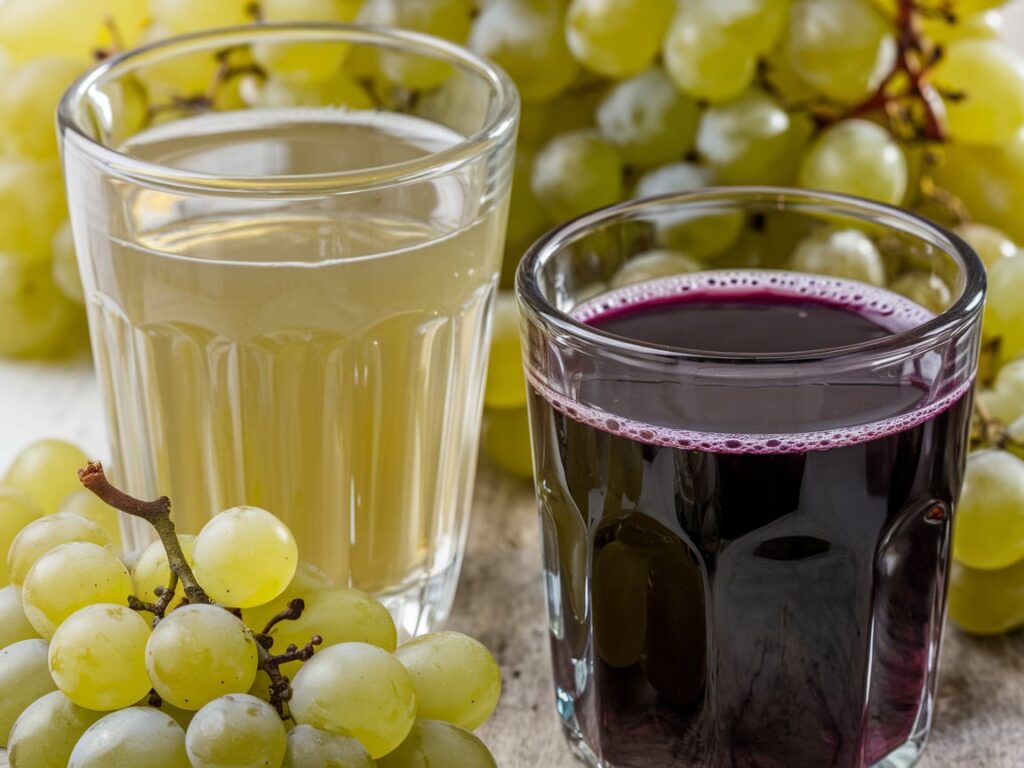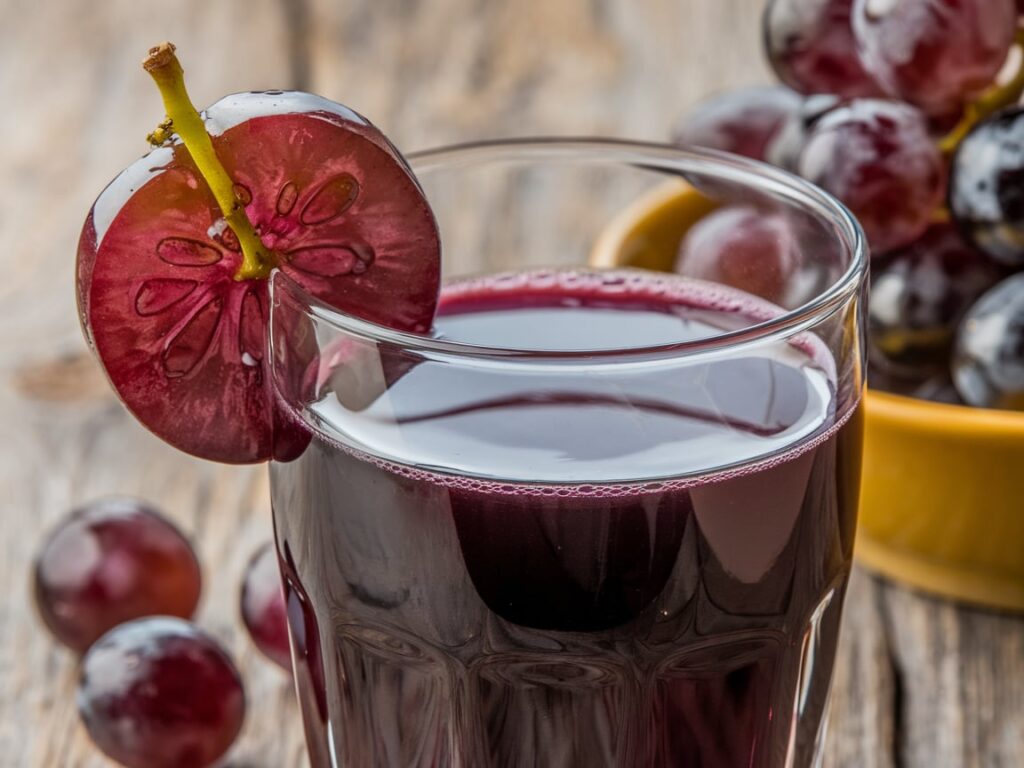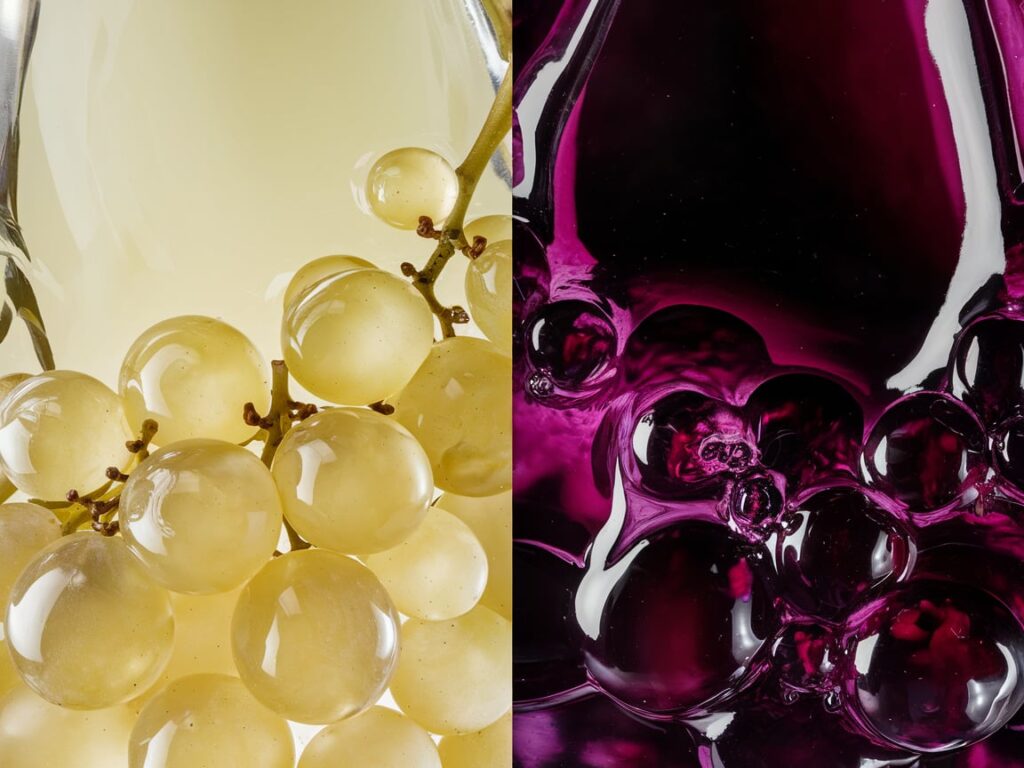When deciding between white and purple grape juice, many people are curious about which option offers more health benefits. Both juices have distinct characteristics, from flavor to nutrient content. In this article, we’ll explore the nutritional differences, health effects, and specific benefits of white versus purple grape juice to help you make the best choice.
Introduction to White and Purple Grape Juice
Grape juice is a popular beverage known for its refreshing taste and numerous health benefits. However, choosing between white and purple grape juice can be tricky as each type has its own unique advantages. Understanding the differences can help you decide which juice aligns better with your health goals.
To compare how white and purple options differ, check out this Livestrong article for additional insights. Plus, if you’re looking to enhance your beverage selection with healthier snacks, these Earl Grey Cookies might be the perfect pairing.
Nutritional Profile Comparison of White and Purple Grape Juice
When it comes to nutrition, both white and purple grape juice provide valuable vitamins and minerals, but there are some key differences:
- Calories and Sugar: Both juices are relatively high in natural sugars, with purple grape juice typically containing slightly more sugar and calories.
- Vitamins: Both are rich in vitamin C and vitamin K, which support immune function and bone health.
- Antioxidants: Purple grape juice is particularly high in antioxidants like resveratrol, which has been linked to heart health benefits.
For more on how grape juice can support cardiovascular health, check out this research on cardiovascular benefits.
Health Benefits of Purple Grape Juice
Purple grape juice is often favored for its high antioxidant content, specifically resveratrol, which has a variety of health benefits. Some of the most notable advantages include:
- Heart Health: The antioxidants in purple grape juice help improve blood circulation and reduce LDL cholesterol.
- Cognitive Function: Studies suggest that regular consumption of purple grape juice may protect brain cells and enhance memory.
- Free Radical Protection: The high levels of polyphenols in purple grape juice combat oxidative stress and inflammation.
You can enjoy this juice with a tasty snack like Pumpkin Banana Loaf, which also provides a nutritious energy boost.
Health Benefits of White Grape Juice
White grape juice is lighter in both flavor and color, and while it contains fewer antioxidants, it offers other health benefits:
- Digestive Health: White grape juice is gentle on the stomach and may help with digestion, particularly for those sensitive to acidic foods.
- Hydration: Its mild, sweet flavor makes white grape juice an easy choice for staying hydrated.
- Teeth-Friendly: Unlike purple grape juice, white grape juice is less likely to cause tooth stains, making it a more convenient choice for daily consumption.
Pairing it with lighter treats like Muddy Buddies can make for a delicious, easy-to-digest snack.
Antioxidants and Their Role in Health: White vs. Purple Grape Juice
Antioxidants are essential for fighting free radicals and reducing inflammation in the body. Here’s how white and purple grape juice compare in terms of antioxidant content:
- Resveratrol: Found primarily in the skins of purple grapes, resveratrol is known for its heart-healthy and anti-aging properties.
- Polyphenols and Flavonoids: These compounds, abundant in purple grape juice, protect against oxidative stress.
- White Grape Juice Antioxidants: While containing fewer antioxidants than its purple counterpart, white grape juice still offers some benefits, particularly for those who prefer a milder taste.
Which Grape Juice Is Better for Cardiovascular Health?
For those focused on heart health, purple grape juice is the clear choice due to its higher antioxidant content. The polyphenols in purple grape juice have been shown to:
- Lower Blood Pressure: Regular consumption can improve circulation and lower blood pressure.
- Reduce Cholesterol: Purple grape juice helps manage LDL cholesterol levels, promoting heart health.
- Prevent Blood Clots: The antioxidants in purple grapes reduce the risk of blood clots, further protecting against heart disease.
For more information on improving your heart health through diet, check out recipes like this heart-friendly Beef Stroganoff.
Taste and Usage Preferences: White vs. Purple Grape Juice
Taste often plays a major role in choosing between white and purple grape juice:
- White Grape Juice: Milder and sweeter, making it more versatile in recipes and suitable for cocktails.
- Purple Grape Juice: Bolder and more robust, commonly preferred for its strong flavor and higher nutrient content.
Potential Downsides of Grape Juice: White and Purple
While both types of grape juice offer health benefits, there are some potential downsides to consider:
- High Sugar Content: Both white and purple grape juice can be high in natural sugars, which may contribute to weight gain or blood sugar spikes.
- Caloric Density: Both types are calorie-dense, so moderation is key.
- Digestive Issues: Drinking large amounts may lead to bloating or discomfort due to the sugar and fiber content.
FAQs
Which Grape Juice Has More Antioxidants?
Purple grape juice contains significantly more antioxidants, including resveratrol, which makes it the better option for boosting your antioxidant intake.
Can Purple Grape Juice Improve Brain Health?
Yes, the antioxidants in purple grape juice can help protect brain cells from oxidative stress, potentially enhancing memory and cognitive function.
Does White Grape Juice Offer the Same Heart Benefits as Purple?
White grape juice does not offer the same level of heart protection as purple grape juice due to its lower antioxidant content.
How Much Grape Juice Should I Drink Daily?
It’s recommended to drink grape juice in moderation—typically around 8 ounces a day—to avoid excessive sugar and calorie intake.
Is White Grape Juice Better for Digestion?
White grape juice is lighter and less acidic, making it a better option for those with sensitive stomachs.
Conclusion
Both white and purple grape juice offer unique health benefits, and the best choice depends on your individual preferences and health goals. If you’re looking for a juice rich in antioxidants and heart health benefits, purple grape juice is the superior choice. For those who prefer a milder taste or need something easier on digestion, white grape juice is a better option.
Incorporate either juice into your diet with recipes that suit your palate, and enjoy the health benefits of both white and purple grape juice in moderation.




